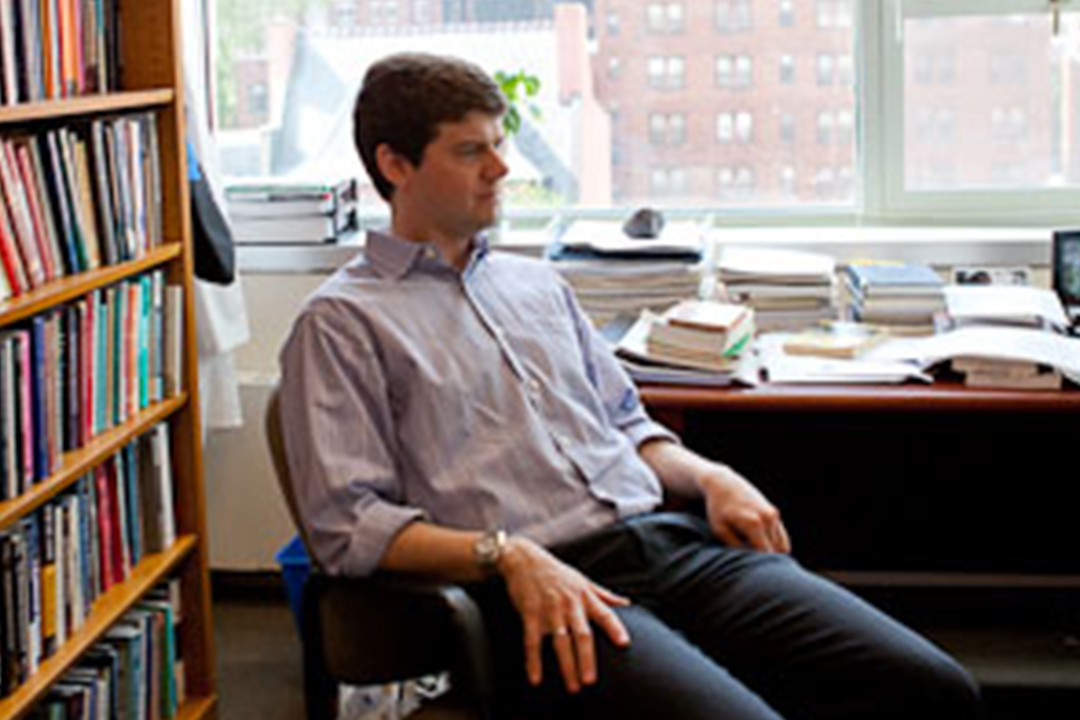As the public wades through the Republican presidential primaries and non-stop news coverage of the nomination contest continues, we asked Associate Professor of Political Science John Sides to provide his assessment of how the 2012 election is shaping up. A scholar of political behavior in American and comparative politics and co-founder and frequent contributor to the popular political blog The Monkey Cage, Sides is learning what issues are important to the public and how voter opinion on the candidates is evolving.
What are your thoughts on why a clear front runner has yet to emerge in the Republican race for the presidential nomination?
Front runners emerge quickly when they are acceptable to a wide swath of the party. This year, the Republicans had no such candidate. Although Romney did pick up the majority of endorsements from other Republican leaders, many more of these leaders chose not to endorse any candidate—a major difference from previous presidential elections. This lack of consensus among leaders means that voters are not receiving a clear signal about who to support. As a result, voter opinions depend more on information from primary and caucus outcomes, advertisements, the media, and so on. In 2012, we've seen just how much each of these things has influenced the candidates' fortunes at one point or another.
President Obama’s camp is also gearing up their campaign activities. How will they attempt to recreate the level of engagement and excitement they amassed in the 2008 campaign? Do you think they will succeed?
I don't think the Obama campaign is going to be able to recreate the excitement of 2008. It's much easier to be the challenger when the economy is weak than to be the incumbent when the economy is weak. But the Obama campaign will still raise a lot of money. They'll use that money to develop an increasingly sophisticated method of targeting voters—both to identify likely supporters or persuadable voters, and mobilize them on Obama's behalf come November. In general, campaigns tend to rally the party faithful, so I have no doubt Obama will be able to create a lot of enthusiasm on his behalf, particularly once the GOP nominee is known.
Negative advertising is bigger than ever this year due to new funding laws. As a political scientist, do you worry about the impact of these ads on voters?
I don't worry much about negative advertising. There is not a lot of evidence that it works—either by helping or hurting candidates or by turning off voters. And one can easily debate whether negative ads are that much worse than positive ads. Scholars have found that negative ads tend to focus more on the issues and contain more evidence for their claims, compared to positive ads. Indeed, one can easily see why positive ads could be full of half- and mistruths, as candidates exaggerate their own record.
You recently launched with UCLA political scientist Lynn Vavreck Data Points 2012, which is surveying 1,000 people every week until Election Day. What is the data indicating to date about the American voting populace?
We're trying to capture Americans' views on the economy and other politically salient issues, as well as their views on the candidates themselves. For example, in one of our recent surveys voters tended to believe that Obama, more so than Romney, is sympathetic to their interests and those of the poor and middle class, but they don't think this of Rick Santorum.
What issue(s) do you predict will most affect the vote this year in the swing states?
At this point, the economy is the most important issue in all of the states, swing or otherwise.


